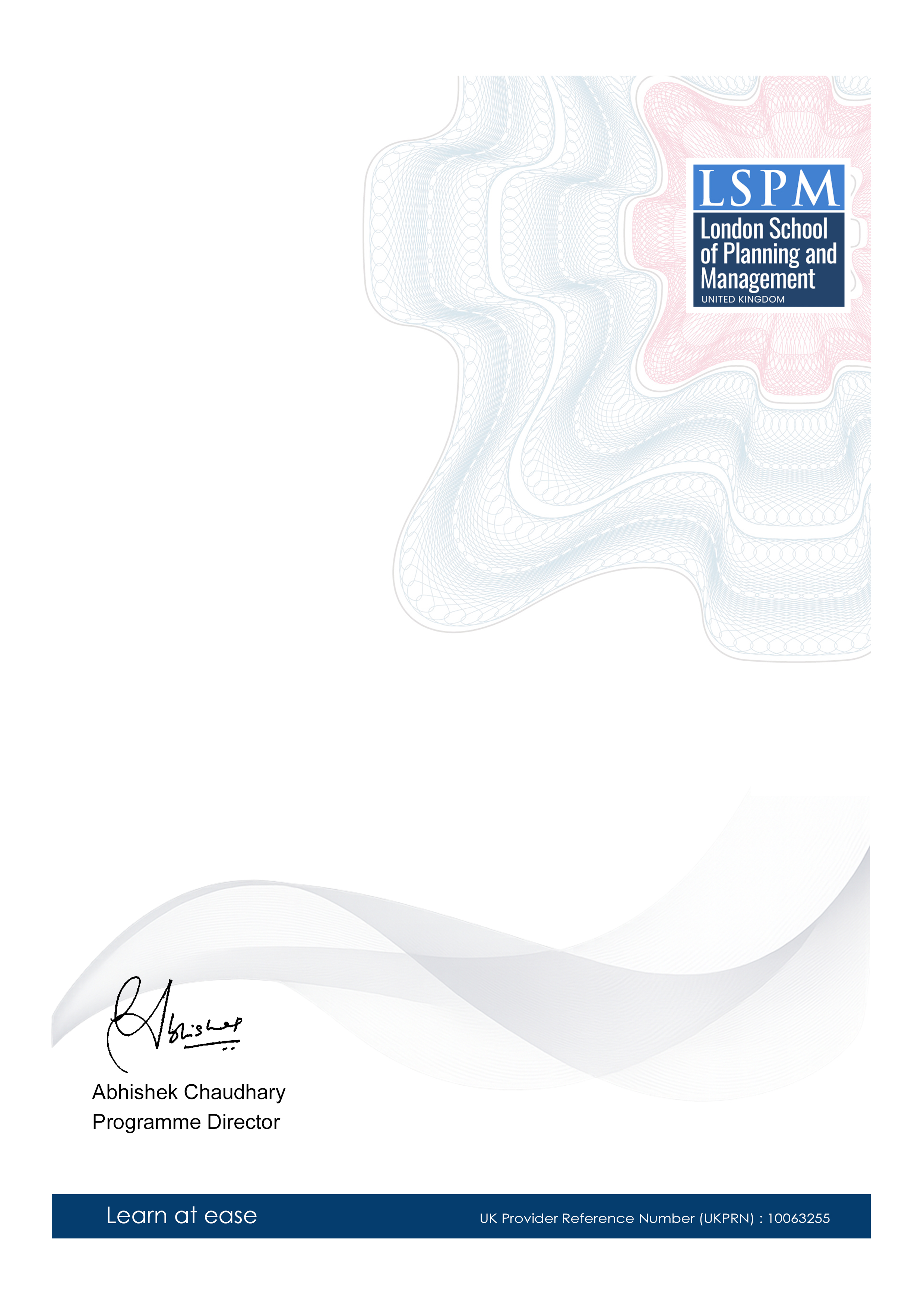Professional Certificate in Humanitarian Crisis Mapping and GIS
-- viewing nowThe Professional Certificate in Humanitarian Crisis Mapping and GIS is designed for individuals seeking to understand and address complex humanitarian challenges using geospatial technologies. This program provides comprehensive training in crisis mapping, data visualization, and geographic information systems (GIS) to equip learners with the skills needed to make informed decisions and develop effective responses to humanitarian crises.
4,630+
Students enrolled
GBP £ 149
GBP £ 215
Save 44% with our special offer
About this course
100% online
Learn from anywhere
Shareable certificate
Add to your LinkedIn profile
2 months to complete
at 2-3 hours a week
Start anytime
No waiting period
Course details
Career path
Professional Certificate in Humanitarian Crisis Mapping and GIS
The Professional Certificate in Humanitarian Crisis Mapping and GIS is a comprehensive program that equips learners with the skills and knowledge to effectively map and analyze humanitarian crises using geospatial technologies. This program is designed for individuals who want to pursue a career in the humanitarian sector, disaster management, or geospatial intelligence analysis.
Career Roles
Upon completion of the Professional Certificate in Humanitarian Crisis Mapping and GIS, individuals can pursue various career roles in the humanitarian sector, disaster management, or geospatial intelligence analysis. Some of the primary career roles include:
- Crisis Mapping Specialist: Responsible for collecting, analyzing, and visualizing data related to humanitarian crises using geospatial technologies. They work closely with humanitarian organizations, governments, and other stakeholders to provide timely and accurate information for decision-making.
- GIS Analyst: Focuses on analyzing and interpreting geospatial data to support decision-making in various fields such as urban planning, environmental management, and disaster risk reduction. They use GIS software to create maps, perform spatial analysis, and develop geodatabases.
- Disaster Risk Reduction Specialist: Works to identify, assess, and mitigate the risks associated with natural disasters. They develop disaster risk reduction strategies, conduct risk assessments, and provide training and capacity building to communities and stakeholders.
- Humanitarian Information Management Officer: Responsible for managing and disseminating information related to humanitarian crises. They collect, verify, and analyze information from various sources, and use GIS and other technologies to visualize and share this information with relevant stakeholders.
Entry requirements
- Basic understanding of the subject matter
- Proficiency in English language
- Computer and internet access
- Basic computer skills
- Dedication to complete the course
No prior formal qualifications required. Course designed for accessibility.
Course status
This course provides practical knowledge and skills for professional development. It is:
- Not accredited by a recognized body
- Not regulated by an authorized institution
- Complementary to formal qualifications
You'll receive a certificate of completion upon successfully finishing the course.
Why people choose us for their career
Loading reviews...
Frequently Asked Questions
Course fee
- 3-4 hours per week
- Early certificate delivery
- Open enrollment - start anytime
- 2-3 hours per week
- Regular certificate delivery
- Open enrollment - start anytime
- Full course access
- Digital certificate
- Course materials
Get course information
Earn a career certificate

